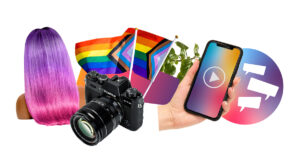
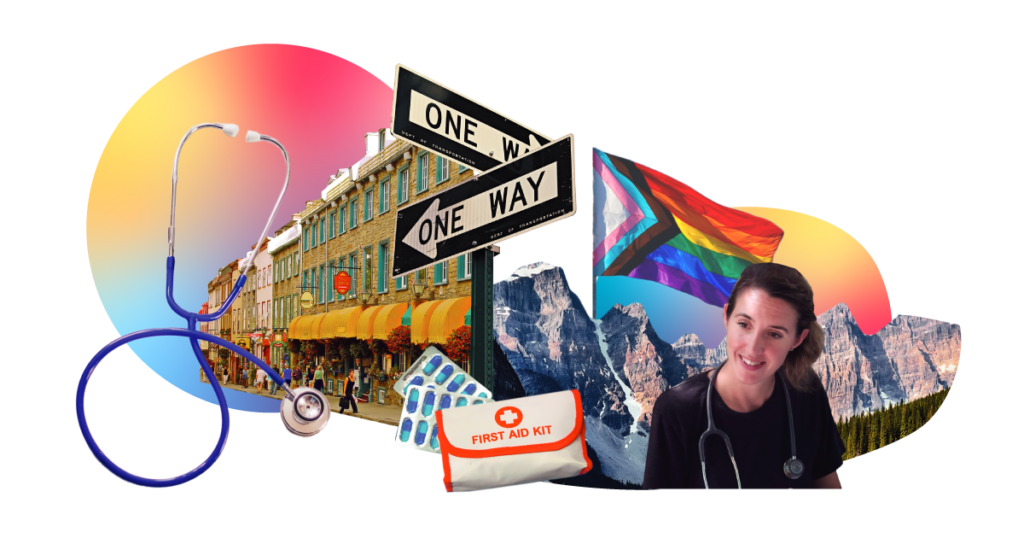
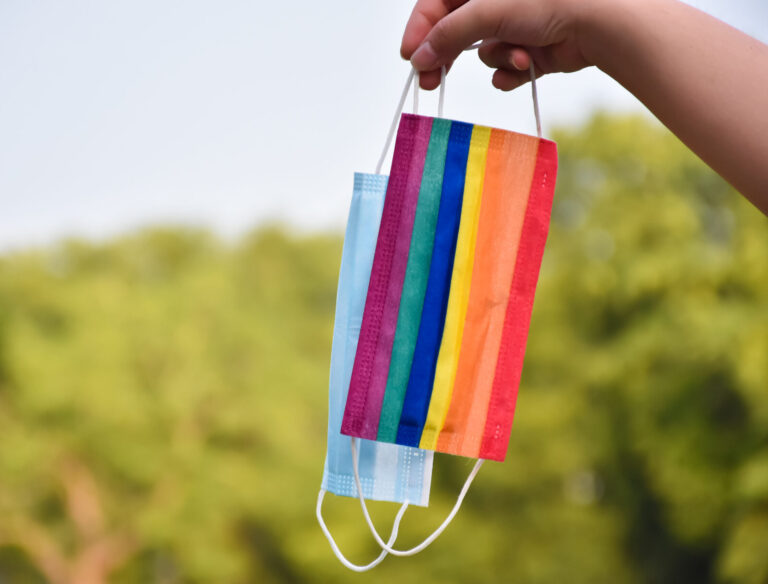
Our communities are important to the overall well-being of every individual. As we have learned through the COVID-19 pandemic lockdowns, it takes the community to keep each other safe. Although the pandemic has impacted our day-to-day lives in many different ways, 2SLGBTQ+ and rural communities exemplify the importance of community. It was through the pandemic that many of us got the time and space to re-evaluate our relationships with ourselves, each other and the globe and in many ways, it revealed the ways community supports each other.
Growing up as a 2SLGBTQ+ in rural Canada comes with some unique challenges as geographic location and isolation influence identity differently. Discovering and navigating queer and trans identities in rural Canada can feel lonely as the representation of the 2SLGBTQ+ community has been limited and restricted by colonial heteronormative and cisgender beliefs. For many folks, it can be a daunting task to “come out” and live an authentic life because doing so invites unwanted attention in these close-knit communities. Close-knit communities, while supportive, can create environments that induce anxiety when it comes to disclosing sexuality and accessing healthcare. Particularly accessing healthcare as a 2SLGBTQ+ person in rural Canada, there are many barriers such as disclosing the types of sex, relationships, and unique needs to a healthcare system that historically ostracized members of the 2SLGBTQ+ communities.
As a Two-spirit, queer person growing up in rural British Columbia, this proved to be especially difficult as it was difficult to feel represented in the queer and trans community. Through colonization, my indigeneity was a source of anxiety and my existence was deemed a problem; in combination with the inherited shame, guilt, and fear of my queerness was a barrier by and of itself. Many 2SLGBTQ+ people share, or at least relate to the feeling of not fully belonging. This is just one personal experience, there are many ways disability, neurodivergence, and different identities can impact our relationships in rural communities; I share this to acknowledge that we all inherit these beliefs, and it is our responsibility to learn and unlearn. It wasn’t until I found my community that I began to unlearn the myths about sexuality and learn more about different gender identities.
For generations, my indigenous communities and queer and trans communities solely survived erasure through the strength of their communities.
Skye Wilson (He/They) Tweet
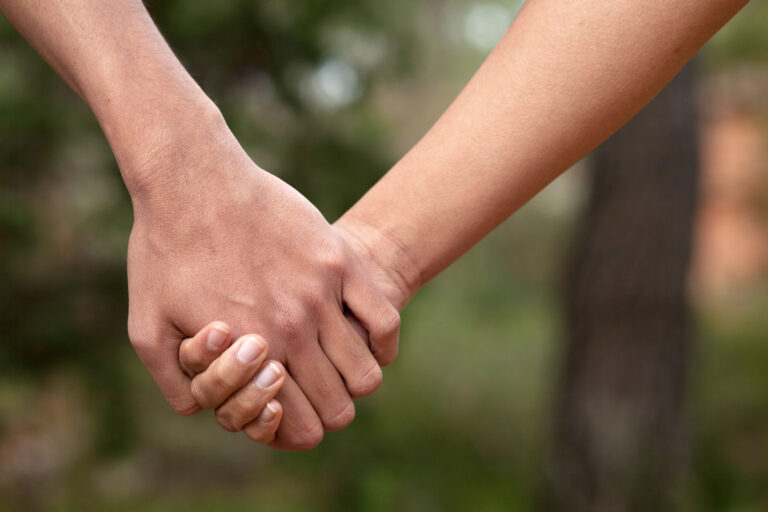
For many queer and trans communities, this survival was hidden underground and behind the scenes in urban areas. They created queer and trans spaces for themselves to feel safer and to live freely, where they can share ideas about their needs. Those spaces came to fruition to fulfill the need to be seen, celebrated and loved, but also to acknowledge the fact that queer and trans people have always existed. For folks living in rural areas, it is especially hard to embrace your identities for many reasons previously stated, but communities begin in those individual relationships.
It is with great privilege, I invite you to embrace your identities, whether it is 2SLBGTQ+, Indigenous, or rural because people before and after you will hold the same or similar experiences. You are not alone. To live freely can and might bring some societal challenges, and I would like to be mindful of that, but the smallest action can ripple on forever. Create spaces for 2SLGBT+ people, for our ancestors and future generations, and create spaces you need.
All communities are different and have different needs. All communities have different needs, rural, 2SLBGTQ+, Indigenous, etc. view and experience the world differently and when we come into a community it is important to connect with similarities and acknowledge differences. Understanding the communities’ needs is important so we can begin to advocate for the ways allies and healthcare can support and give us the care we deserve. Queer and trans people are experts in their experiences in how they experience harm in rural communities and the healthcare system, but times are changing. Rural communities and healthcare don’t know what they don’t know and it is their responsibility to unlearn the colonial ideology they inherited. In many communities, 2SLGBTQ+ healthcare and support are uncharted territory and it is our chance to create and mould into inclusive care we need. We cannot create the community we hope to be without everyone in the community, we need to be the leaders of our health. Health and well-being, as we have seen in the last 3 years, are dependent on the support of the whole community. Together we can unlearn and learn ways to support 2LSGBTQ+ people in rural communities.
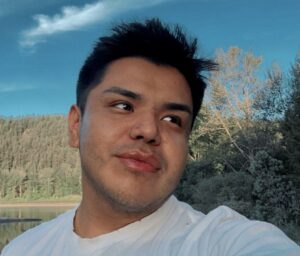
Skye Wilson (He/They) is a Gitxsan, Two-Spirit person from Kispiox who is a student, workshop facilitator, and social justice activist. Skye supports their communities through decolonial, anti-oppressive, inclusive workshops while centring on pleasure and community care. Skye hopes to uplift and strengthen queer and trans visibility for folks living in rural areas through self-expression, self-love, and trying to find queer joy in all situations. Celebrating queer joy is a great way to remind ourselves that it will get better; Skye finds joy in creative makeup, playing volleyball, reconnecting with culture, and dancing with friends.

